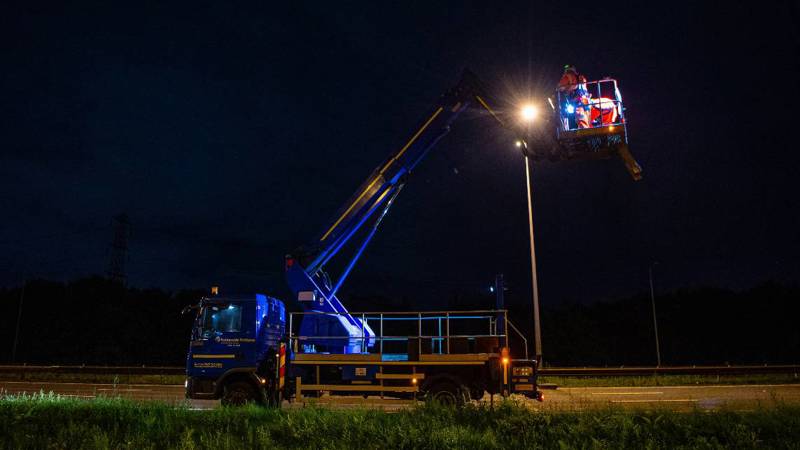LED lighting programme
We aim to cut carbon emissions from roadside lighting by switching most of our network lights to cleaner LED lights by 2027

Road lighting makes up around half of our corporate carbon emissions.
If we are to cut our direct carbon emissions, we must introduce more energy-efficient lighting.
In February 2022, we started a 5-year £132M programme to retrofit 70% our road lights from traditional incandescent bulbs to greener, more efficient LED lights.
This involves replacing over 50,000 lights. Depending on the type of bulbs we are replacing, this could reduce the energy we use for lighting by 65%.
This will significantly reduce our carbon footprint – making the Strategic Road Network greener and more energy efficient.
What is LED street lighting?
LED stands for light-emitting diode, a highly efficient and environmentally friendly light source.
Compared with earlier conventional types of lighting, LEDS:
- need less energy and are cheaper to run
- can be dimmed when necessary
- concentrate light where it's needed - causing less light pollution
- give a more comfortable quality of light for road users
- have a lower failure rate
- need less maintenance - meaning less risk for our roadworkers
Our programme of work
Between July 2022 and March 2023, we will work on newer lighting columns which are quicker and easier to retrofit.
We'll then move on to retrofit older lighting columns. We'll also need to replace some of our roadside infrastructure so that it is compatible with LED technology.
Our target is to complete all works by March 2027.
Managing roadworks
We always aim to minimise disruption when carrying out work.
We'll need to close lanes to keep our workers safe while we perform the retrofit. This is particularly important when we're working in the central reservation or close to the carriageway.
To reduce the impact, wherever possible we'll combine LED retrofit in planned road closures for other works.
Supporting decarbonisation
The LED retrofit programme is a key part of our Net zero highways plan to reduce our corporate emissions to net zero by 2030. Other ways that we will cut our direct carbon emissions include:
- buying 100% of our electricity by a certified renewable tariff from 2020
- a 75% reduction in corporate emissions by 2025, compared to a 2017-2018 baseline
- 75% of our cars and vans to be electric or hybrid by 2025
- aiming to generate 10% of our electricity from renewable sources on, or near to, our own sites by 2030
- planting at least 3 million trees on or near our land by 2030
In 2020 we achieved our commitment to only buy 100% certified renewable electricity.
We're now focussing on generating more of our own energy, decarbonising our travel and the removal of carbon on our own sites.
